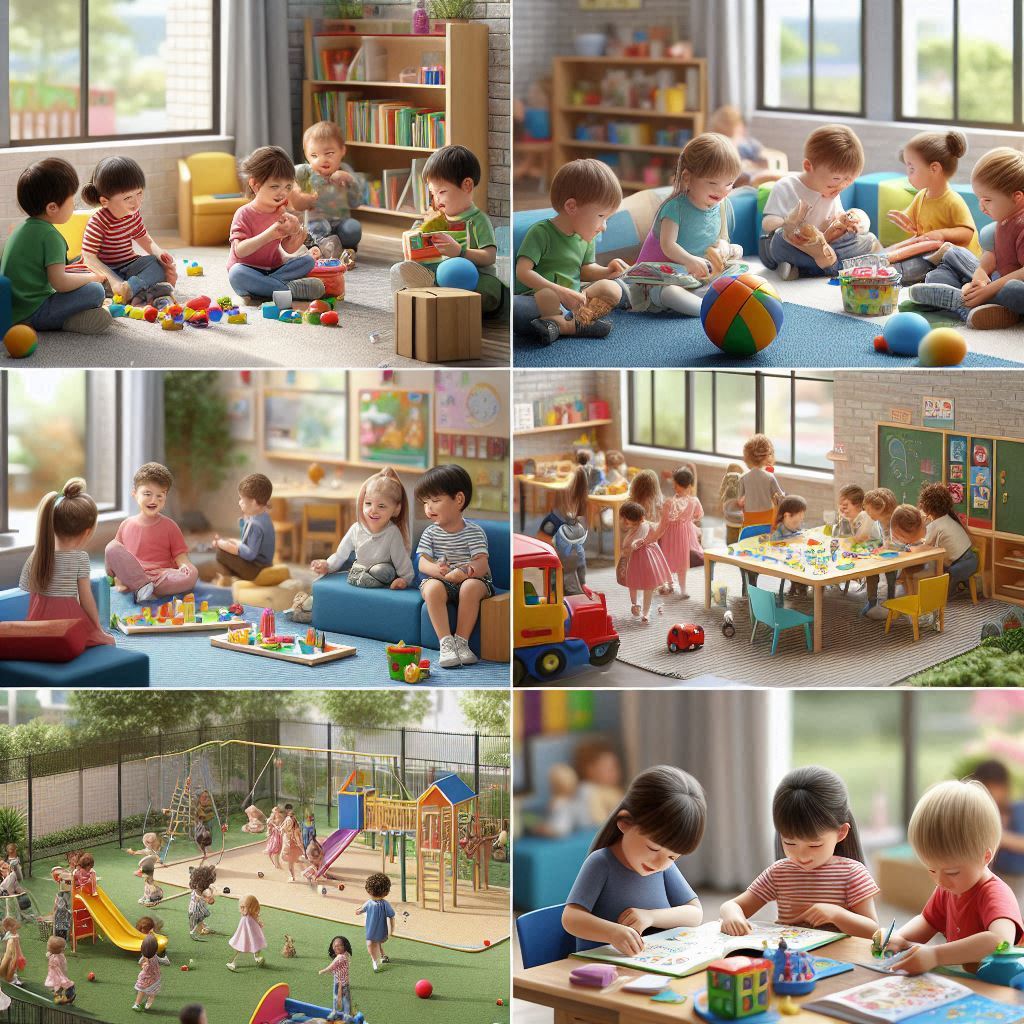
Play is often seen as a simple pastime for children, but its importance extends far beyond mere entertainment. At Happy Baby Academy, we recognize that play is a fundamental aspect of childhood that shapes a child’s development in profound ways. This article explores how play influences various aspects of a child’s growth, from physical and cognitive development to social skills and emotional intelligence.
1. The Importance of Play in Childhood
Play is essential for a child’s overall development. It provides opportunities for children to explore their environment, express themselves, and learn important life skills. Through play, children engage in activities that stimulate their minds, strengthen their bodies, and foster their social connections.
a. Holistic Development
Play contributes to holistic development, which refers to the growth of a child across multiple dimensions—physical, cognitive, social, and emotional. By engaging in different types of play, children develop a well-rounded skill set that prepares them for future challenges.
2. How Play Fosters Physical Development
a. Enhancing Motor Skills
Physical play, such as running, climbing, and jumping, helps children develop gross motor skills—essential for coordination and balance. Fine motor skills are also enhanced through activities like drawing, building with blocks, and manipulating small objects. At Happy Baby Academy, we incorporate various physical activities that promote motor skill development while ensuring that children have fun.
b. Encouraging Healthy Habits
Active play encourages a healthy lifestyle and helps children understand the importance of physical fitness. By fostering an appreciation for movement and activity from an early age, we help children establish healthy habits that will benefit them throughout their lives.
3. Play as a Tool for Cognitive Growth
a. Boosting Problem-Solving Skills
Imaginative play allows children to explore scenarios, think critically, and solve problems creatively. Whether they’re building a fort, organizing a pretend grocery store, or navigating imaginary challenges, children learn to analyze situations and develop strategies. Happy Baby Academy emphasizes creative play to enhance cognitive skills and inspire young minds.
b. Enhancing Language and Communication
Through play, children are exposed to new vocabulary and opportunities for social interaction. Conversations with peers during collaborative play enhance language skills, allowing children to practice speaking, listening, and understanding others. Our educators at Happy Baby Academy facilitate play that promotes rich dialogue and language development.
4. Social Skills Development Through Play
a. Building Relationships
Play provides a natural setting for children to form friendships and practice social skills. As they interact with peers, children learn about cooperation, sharing, and taking turns. These social interactions foster empathy and help children understand the emotions of others.
b. Navigating Conflict Resolution
During play, children may encounter disagreements and conflicts. These moments offer valuable learning experiences in negotiation and conflict resolution. Educators at Happy Baby Academy guide children in navigating these situations, teaching them how to communicate effectively and reach peaceful resolutions.
5. Emotional Intelligence Gained Through Play
a. Expressing Emotions
Play serves as an outlet for children to express their emotions, whether it’s joy, frustration, or excitement. Engaging in play allows children to explore their feelings in a safe environment, fostering emotional awareness and regulation. Happy Baby Academy encourages this emotional exploration through guided play activities.
b. Building Resilience
When children face challenges during play—whether it’s attempting a new game or navigating social dynamics—they learn resilience. They discover that mistakes and failures are part of the learning process and develop the confidence to try again. This resilience is a vital skill that will serve them well throughout life.
Conclusion
Play is a powerful catalyst for a child’s development, impacting physical, cognitive, social, and emotional growth. At Happy Baby Academy, we celebrate the importance of play as a cornerstone of early learning. By providing a rich environment for play, we help children develop essential skills that prepare them for future success.
Join Us!
Are you ready to support your child’s development through the power of play? We invite you to visit Happy Baby Academy and experience how our programs nurture well-rounded children through engaging play activities. Subscribe to our newsletter for insights into our enriching programs and upcoming events—let’s work together to cultivate a vibrant learning community for our children!